From the peaks of the Alps to the mountains of Yunnan, female ultra runners are redefining endurance, resilience and empowerment, one step at a time, Xing Wen reports.
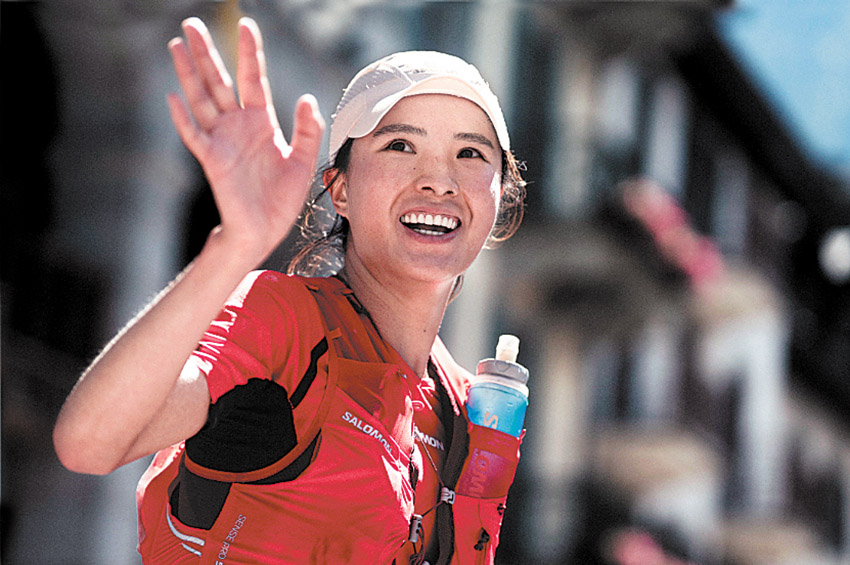
Solitude, darkness, the capriciousness of the wilderness, and the physical toll of traversing steep terrain over long distances — any of these could understandably deter women from taking up trail running.
Yet, in defiance of such challenges, China is witnessing a remarkable surge of women embracing the world of dirt, rocks and hills, with its elite athletes now commanding international recognition.
A standout example came in late August, when Yao Miao, 29, triumphed in the women's category of the Ultra Trail du Mont Blanc OCC — a 61-kilometer race around Mont Blanc. It is so called because the course runs from Orsieres to Champex to Chamonix in France. With this victory, together with her 2018 win in the 101km Courmayeur via Champex-Lac to Chamonix and another OCC title in 2024, Yao made history as the first and only Asian athlete to claim three UTMB titles across different event categories.
ALSO READ: Women shine in digital job market
Widely regarded as China's "Queen of Trail Running", Yao currently holds fourth place globally in the International Trail Running Association rankings, with a performance index of 827. Her compatriot Xiang Fuzhao, 34, follows closely in sixth place with a score of 816.
These are not isolated victories, but clear signals of the profound rise of Chinese women in trail running, marked by elevated competitive standards and expanding grassroots participation.
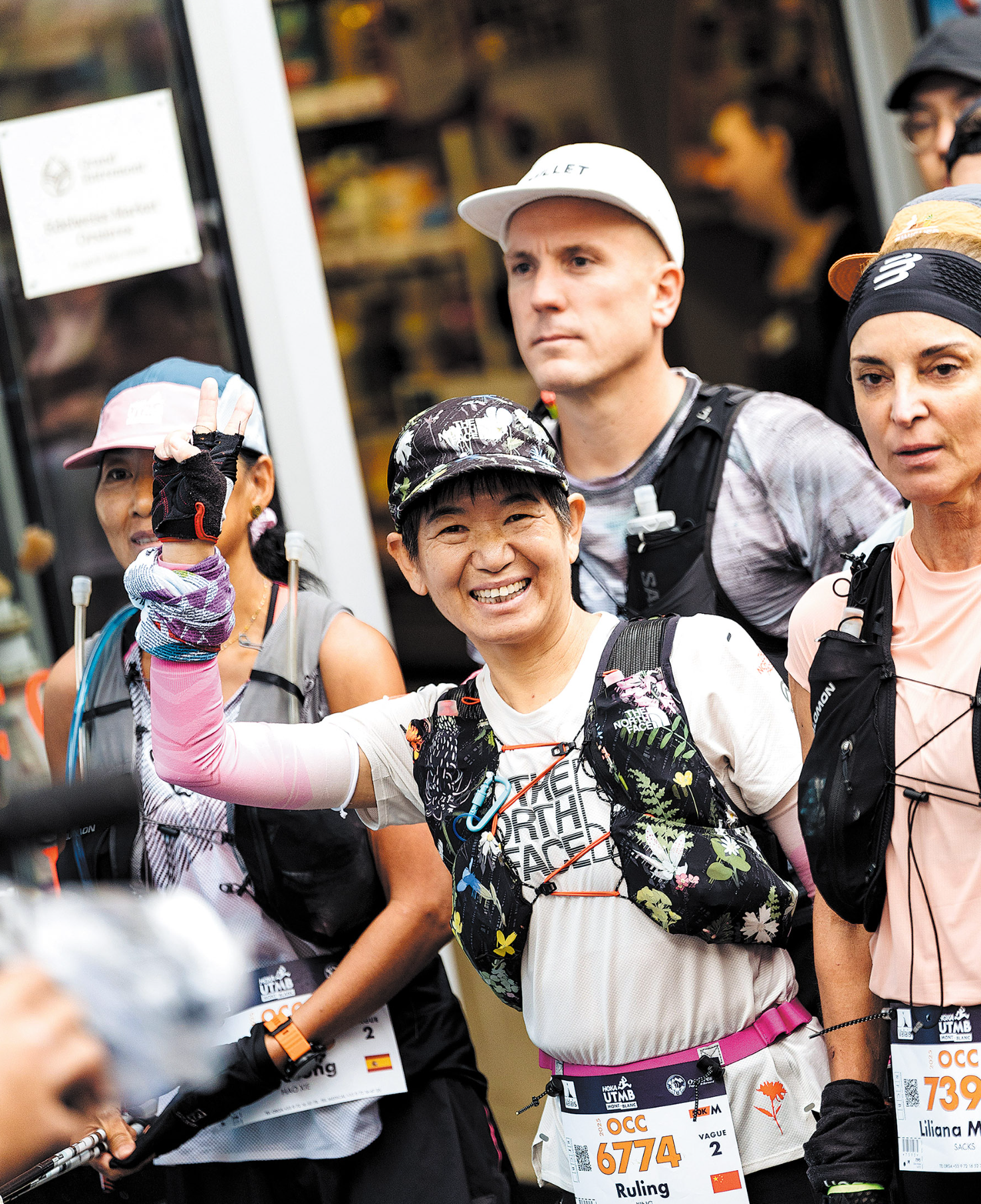
Lyu Ruihan, 30, who is based in Beijing, has been an active trail runner for 10 years and was formerly a test engineer in the cybersecurity sector, leading a sedentary lifestyle.
After she was diagnosed with mild fatty liver disease, she was determined to improve her health and connect with nature through hiking in the mountains.
During one descent, she started running to reach the bottom before darkness fell and discovered that trail running was more efficient.
This realization sparked her passion for the sport, leading to her first competitive race in late 2015.
To better prepare for these events, Lyu incorporated road running and strength training during the week and ran in the mountains with friends on weekends.
Her dedication paid off in May 2018 when she reached the podium at a 100km ultramarathon in the Meili Snow Mountain National Park in Yunnan province — a highlight of her amateur career.
Throughout that year and the next, Lyu consistently placed among the top 10 female runners in every race she entered.
"I could clearly feel more female runners are joining the races, with many transitioning from other endurance sports like marathons and triathlons," she says.
She also notes that, against the backdrop of the national fitness campaign, participants are becoming more knowledgeable about using structured, scientific training methods to enhance their performance.
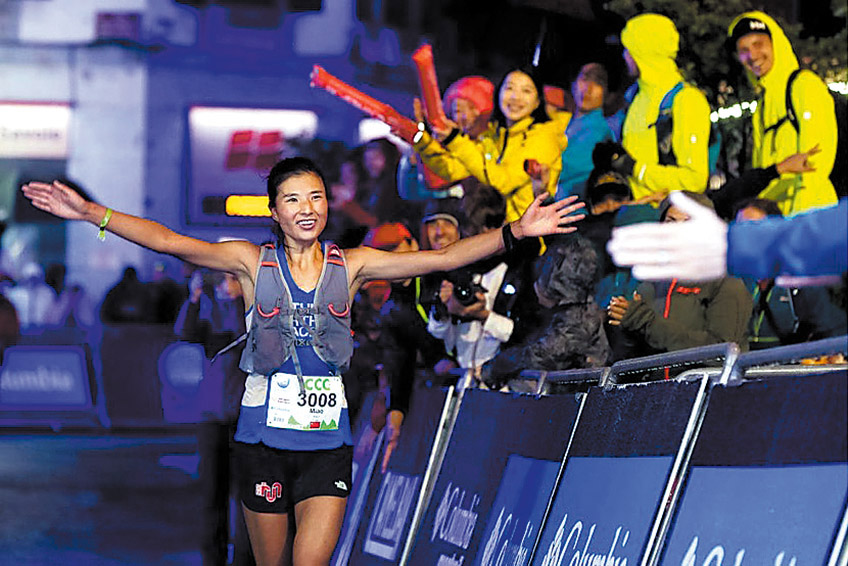
Shanghai resident Song Ci in her 30s, a regular at the gym, was first attracted to trail running in 2020 after participating in a 12km race in Zhejiang province.
"I've always preferred strength training over cardio, but trail running felt completely different. Chatting and laughing with friends along the way, enjoying the scenery, eating fried rice and braised beef at aid stations … I finished the 12 km in just over two hours, and it felt surprisingly manageable," she recalls.
She soon progressed to races between 20 km and 30 km. She found she could outpace some of her male friends on mountain trails, a discovery that filled her with quiet pride.
"Women are naturally curious and open to new things," Song says.
"While trail running may sound like an extreme sport full of challenges, once you try it, you might discover the tremendous potential within yourself as a woman. Our endurance and pain tolerance can be very strong."
Song also finds herself embracing the warm, tightly knit, trail-running community. "Perhaps it's because we have to face so many uncertainties in the wild that we need to accompany and support each other, whether by sharing supplies or helping runners who experience cramps or other issues on the trail," she says.
"Go alone to run fast, go together to run far."
Beyond the physical and social aspects, trail running also strengthens Song's environmental awareness. Her experiences in nature have helped her understand the importance of the "leave-no-trace" principle, which she now integrates into her daily life through more sustainable choices.
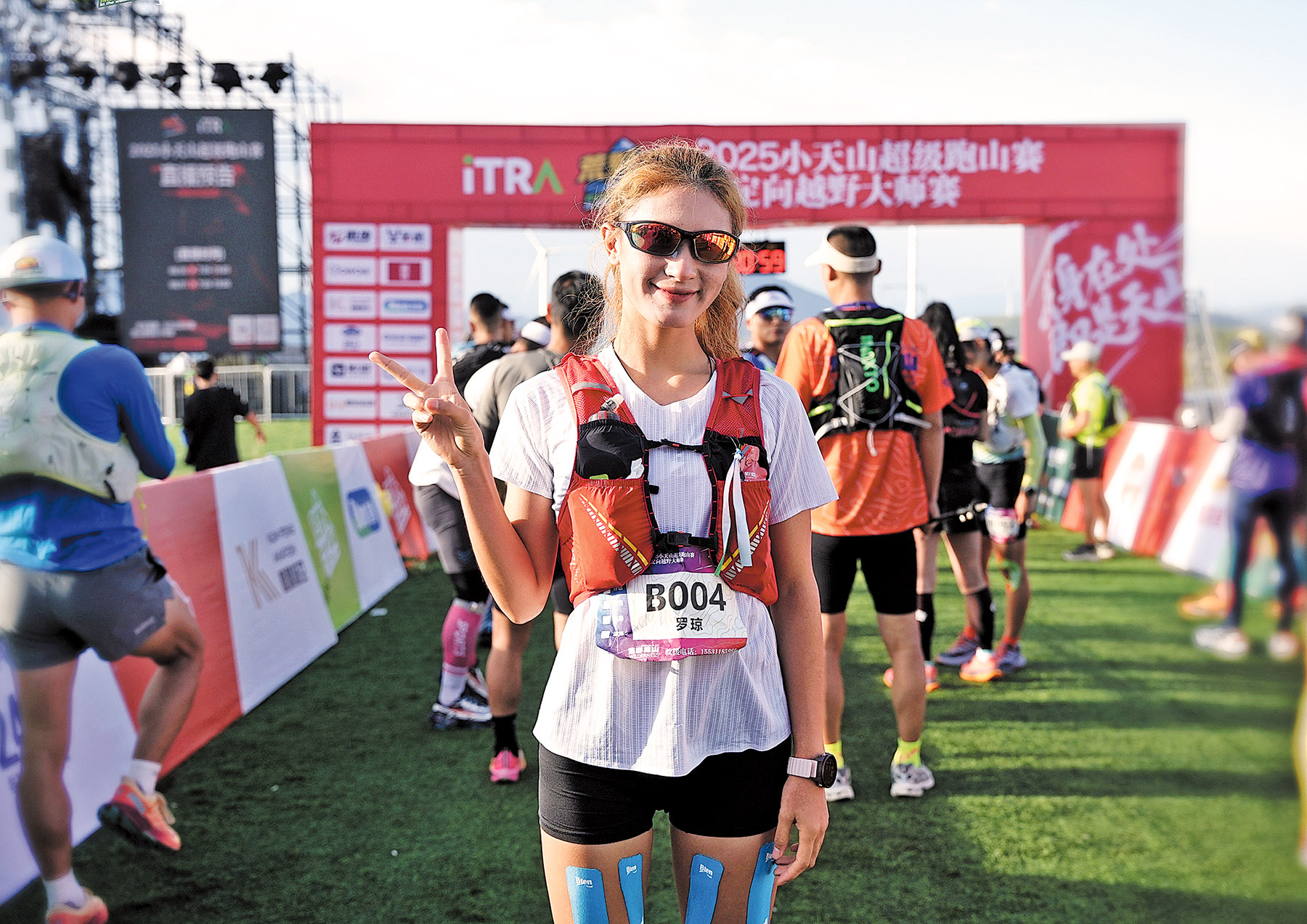
Gender-specific challenges
For these female trail runners, from elites like Yao to enthusiasts like Song, gender-specific challenges have been a consistent part of their experience. Yao points out that as a professional trail runner, she relates to the unique struggles women face in the sport.
"The menstrual cycle is one of the biggest obstacles. Sometimes we train for months, only to have our performance severely impacted because the race coincides with our period, leading to disappointing results or even having to withdraw," she explains.
She also highlights practical issues such as the lack of private changing areas or toilets for women at aid stations during long-distance events, as well as safety concerns when running on remote trails at night.
Song adds that she once struggled to find well-tailored trail-running clothes and shoes designed specifically for the female anatomy.
She adds that female trail runners also struggle to find vests with an ergonomic fit for the female physique, yet this piece of gear is essential for carrying water, food and other supplies.
For Lyu, who became a mother of twins in May, the challenges multiplied during pregnancy and her postpartum period. She maintained her trail training throughout pregnancy, walking uphill and jogging cautiously downhill with her hands cradling her abdomen, though she had to drastically reduce her training schedule. After giving birth, finding a supportive sports bra became a new challenge, as breastfeeding changed her size.
"Fellow runners who were also new moms would exchange tips on which bras actually worked. Finding a good one felt like finding a treasure," she says.
Her days now start at 5 am, squeezing in a 10-km run in the sacred window after pumping breast milk before her babies wake — a daily commitment to balancing new motherhood with her identity as a runner.
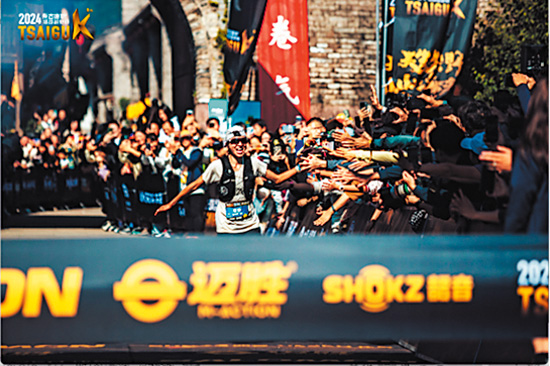
Growing inclusiveness
Positive changes are underway, however, to make the sport more women-friendly.
Globally, the community of female trail runners has been actively working to foster a more inclusive environment for women.
A case in point is Trail Sisters, an organization founded in 2016 to advance gender equity and boost female participation in trail running and hiking. It advocates for events to adopt standards including equal podium spots and awards for men and women, women-specific apparel and merchandise, availability of menstrual products at aid stations, ensuring visible placement of women at the start line instead of placing them behind male runners, and clearly stated pregnancy and postpartum policies. According to its official website, these standards have been met by over 600 events across North America this year.
Similarly, in 2022, British ultra runner Sophie Power — who became famous after being photographed breastfeeding her 3-month-old during a 170.59-km mountain race — launched the SheRaces campaign.
This initiative calls for events to allow pregnancy deferrals, provide breast pumps at aid stations or finish lines, offer safety trackers at checkpoints in dark or remote areas, ensure equal prize money for men and women and implement other guidelines that help create more inclusive and equitable environments for women. It also introduced a women-only trail running series with the goal of providing a safe and supportive environment, thereby encouraging broader female participation.
In China, outdoor gear brands are increasingly focusing on the needs of female trail runners. For instance, Kailas, a Chinese outdoor apparel and equipment brand, began implementing shoemaking molds specifically designed for women in 2020.
The brand has introduced women-specific trail-running vests, allowing female consumers to select sizes based on their bra cup measurements. Lyu notes that this year, she has also spotted sanitary pads at aid stations during some domestic races.
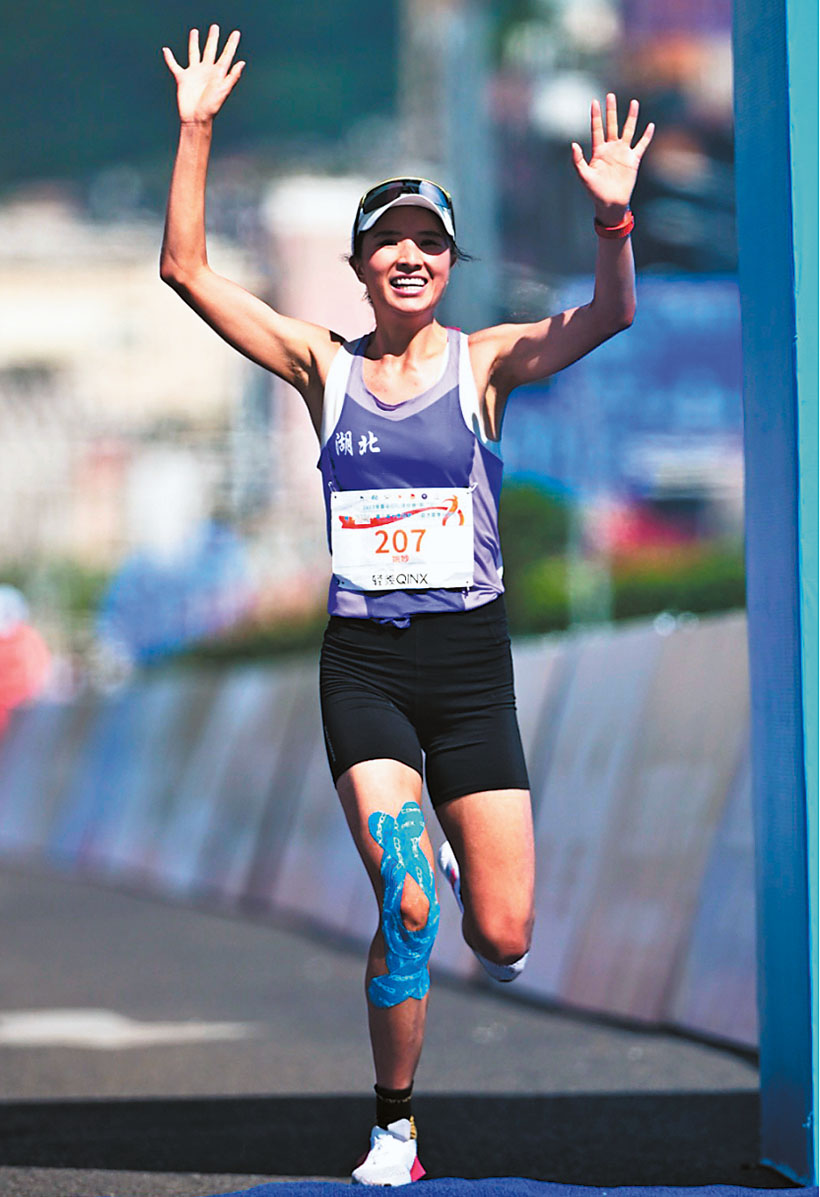
Serving as the race director for the Chinese trail-running gear brand Outopia, Lyu is determined to drive positive, female-friendly changes in the events organized by the brand. It regularly hosts small-scale trail running events located an hour from the city, with participation capped at around 500 runners.
"The courses are not overly hard. We welcome more women to join and aim to provide greater convenience for female participants during the race," she says.
As a former IT professional, Lyu finds fulfillment in her current position, which enables her to merge personal passion with meaningful influence for the women's trail running community.
The brand plans to launch a product line for female runners next year and will invite women of different levels and ages to test the products and help refine details.
"Some existing trail shorts and skirts are designed with insufficient length, creating concerns about being exposed during uphill sections," Lyu adds.
"We hope to design comfortable clothing with thoughtful fabric and cuts that eliminate such unnecessary worries."
Xing Ruling, a 62-year-old retired nurse and active trail runner in Beijing, has witnessed the sport's boom in China over the past 15 years.
In March 2009, she came across a newspaper advertisement for an outdoor endurance run in Beijing's Changping district — one of the very first trail running events ever organized in the Chinese mainland. Her first-place finish in the women's 100km category earned her sponsorship from The North Face brand, launching her into competitions across China and around the world.
"Now there are more and more domestic events with diverse categories. Runners of all levels can find a race that suits them," Xing says.
This growth is reflected in data from the fitness platform Joyrun, which reports trail running events in China surged from just 65 in 2014 to 505 in 2024.
Major events are also opening doors for newcomers. The Chongli 168 Ultra Trail — among the country's most prominent trail races — has offered a dedicated 10km category for female beginners since 2022, inviting more women to explore the sport in an encouraging environment.
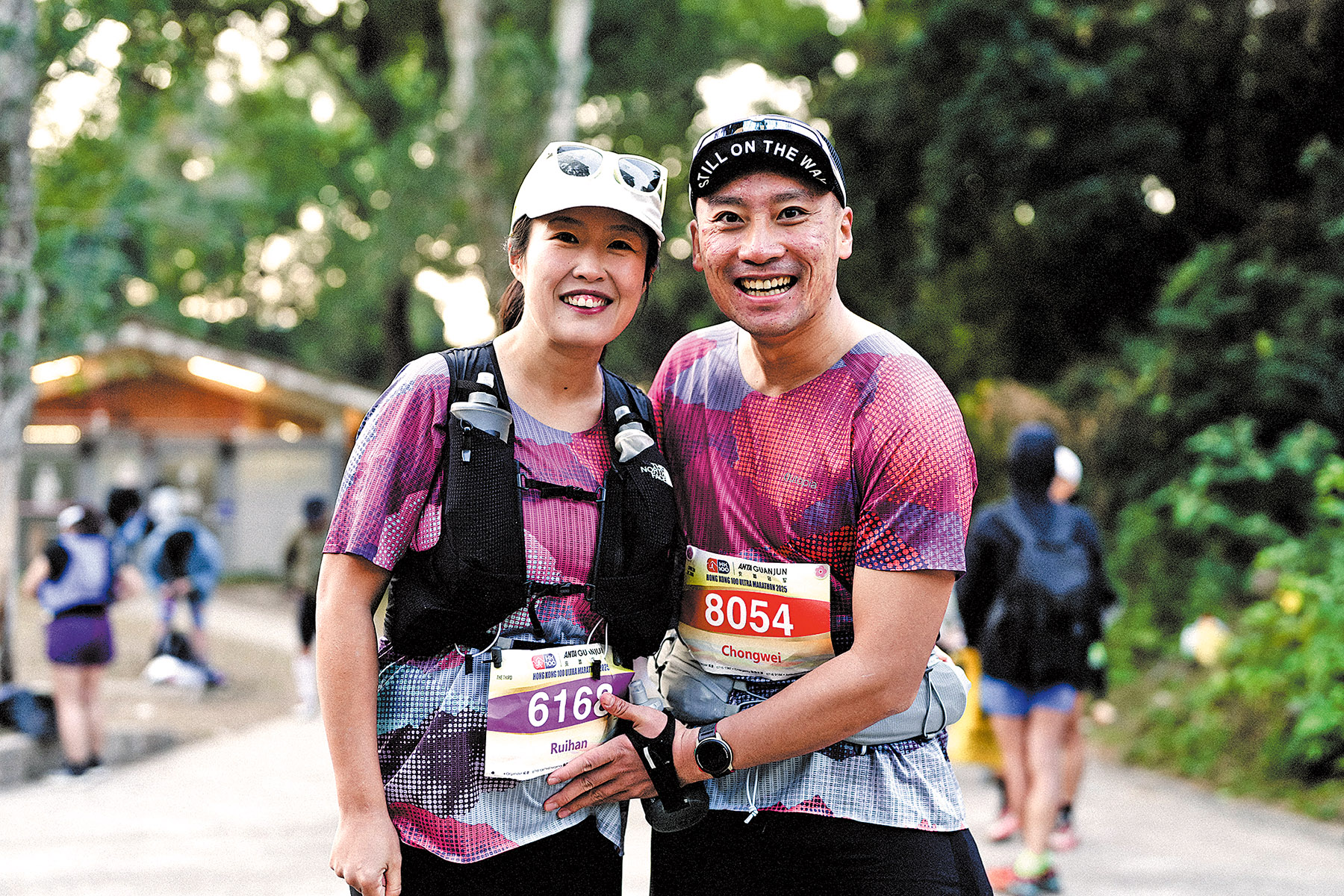
A broader influence
These developments on the trails mirror a larger story of female empowerment.
Chinese women are playing an increasingly vital role in the country's sports landscape, both as elite athletes and grassroots practitioners.
A recent government white paper titled China's Achievements in Women's Well-Rounded Development in the New Era released by the State Council Information Office on Sept 19 reveals that women have accounted for more than 55 percent of Chinese participants and over 60 percent of Chinese medalists in the last four Summer Olympic Games. In the last four Summer Paralympics, female participants accounted for 50.22 percent, and female medalists accounted for 55.62 percent.
At the grassroots level, women made up 56.1 percent of the country's 3.71 million social sports instructors by the end of 2024.
For Xing, trail running has forged her into a more resilient and capable woman. She recalls her 2013 UTMB race in Chamonix, France — a grueling 168-km journey with 10,000 meters of elevation gain.
"My stomach couldn't handle the food at the aid stations. I suffered from severe pain and vomited repeatedly, forcing me to continue on an empty stomach. Not speaking the language made it even harder to seek help. It was an incredibly tough experience," Xing recalls.
ALSO READ: Chinese women shine, Sinner eases past Cilic at China Open
Yet, she persevered, crossing the finish line to learn she had come third in the women's over-50 category.
"I used to be a woman who would cry when facing challenges at work," she reflects. Now, she feels there is no difficulty in life she cannot overcome.
Though retired, her schedule is packed. She trains weekly in the mountains with friends, competes overseas, creates handmade crafts at home by repurposing race packs, tends her grapevines, makes wine, and cares for her two grandchildren — a girl, 11, and a boy, 6. As one of the longest-active amateur trail runners in the Chinese mainland, Xing has no intention of stopping.
"Although I'm aging and my stamina isn't what it used to be, I still want to compete with women my age from other countries. As long as I can run, I'll keep running," she says.
Contact the writer at xingwen@chinadaily.com.cn


